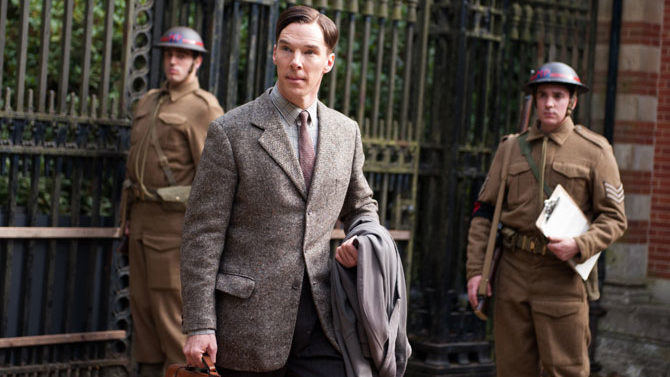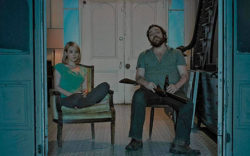The life of Alan Turing, whose work cracking the unbreakable Nazi Enigma Code and his subsequent conviction for indecency (Turing was homosexual), are chronicled in Morten Tyldum’s Golden-Globe-nominated drama.
Benedict Cumberbatch, himself nominated for a Golden Globe for Best Dramatic Actor, continues his meteoric rise from that tall, odd guy who plays Sherlock Holmes in that cool BBC update of Sir Arthur Conan Doyle’s legendary detective. Here, he plays a different sort of detective. Turing, according to the Golden-Globe-nominated script Graham Moore based on the book by Andrew Hodges, might have seen himself more as a gamesman than as a detective, since much is made of Turing’s love of crossword puzzles. The sequences where Turing and his begrudging team of codebreakers—including Golden Globe nominee for Best Supporting Actress Keira Knightley, Matthew Goode and Allen Leech, aka Tom from “Downton Abbey”—are often less tense than those involving the well-intentioned but ultimately misguided detective played by Rory Kinnear (The Creature, in Showtime’s intriguing period horror, “Penny Dreadful”).
The detective thinks Turing is hiding his communist sympathies, when it’s merely his also illegal predilection for men. Fortunately, the bulk of the film focuses on his achievements, not his unjust downfall. Like any Brit pic worth its salt, the cast is tremendous. As if Cumberbatch and Knightley weren’t enough, Charles Dance and personal fave Mark Strong are also added to the clandestine club.
Perhaps the most important aspect of The Imitation Game is the revelation of this formerly top-secret yet incredibly integral reason the Allies won the war. Turing’s key role in the creation of computers, formerly called “Turing machines,” merely make a sad, angering coda.
Like what you just read? Support Flagpole by making a donation today. Every dollar you give helps fund our ongoing mission to provide Athens with quality, independent journalism.










